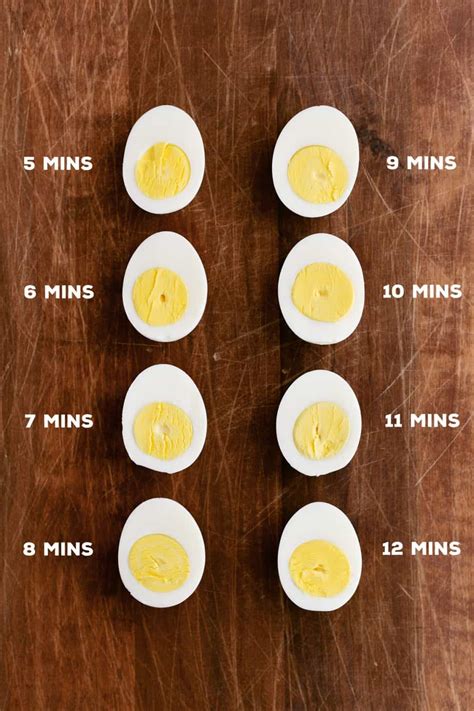How Long to Boil Eggs: A Guide to Perfect Eggs Every Time
Boiling eggs seems simple, but achieving that perfect consistency – whether you prefer a runny yolk, a jammy center, or a fully cooked egg – requires knowing precisely how long to cook them. This guide will walk you through the process, ensuring you get delicious, perfectly boiled eggs every single time.
Understanding Egg Cooking Times
The cooking time for boiling eggs depends entirely on your desired level of doneness. Here's a breakdown:
Soft Boiled Eggs (Runny Yolk):
- Time: 3-4 minutes
- Result: The white will be fully set, but the yolk will be runny and creamy. This is perfect for dipping soldiers or enjoying on toast.
Jammy Eggs (Slightly Set Yolk):
- Time: 6-7 minutes
- Result: The white will be fully set, and the yolk will be slightly firm but still creamy in the center. This offers a balance between runny and fully cooked.
Hard Boiled Eggs (Fully Cooked Yolk):
- Time: 8-10 minutes
- Result: Both the white and yolk will be fully cooked and firm. Ideal for salads, deviled eggs, or snacking.
Tips for Perfect Boiled Eggs
Beyond timing, several techniques contribute to achieving perfectly boiled eggs:
- Start with Cold Water: Always begin with cold water. This allows the eggs to heat gradually, reducing the chances of cracking and creating a more even cook.
- Gentle Boiling: Avoid vigorous boiling. A gentle simmer is key to preventing cracks and ensuring even cooking.
- Ice Bath: Once cooked, immediately transfer the eggs to an ice bath to stop the cooking process. This prevents the yolks from turning green and makes peeling much easier.
- Fresh vs. Older Eggs: Fresher eggs are harder to peel. Older eggs (a week or two old) peel more easily.
Troubleshooting Common Problems
- Cracked Eggs: Add a teaspoon of salt or vinegar to the boiling water to help the egg whites coagulate faster if a crack occurs. This minimizes leakage.
- Difficult Peeling: Ensure you use an ice bath after cooking. If peeling is still difficult, gently tap the egg all over on a hard surface before peeling.
- Greenish Yolk: This is caused by overcooking. Stick to the recommended times to avoid this.
Beyond the Basics: Experimenting with Flavors
Once you've mastered the perfect boil, consider experimenting with different flavors. Add herbs like bay leaves or thyme to the boiling water for an aromatic twist.
Conclusion: Mastering the Art of Boiling Eggs
Boiling eggs is a fundamental cooking skill, and mastering it opens up a world of culinary possibilities. By following these tips and understanding the different cooking times, you can consistently achieve perfectly cooked eggs for any occasion. Now go forth and boil!
